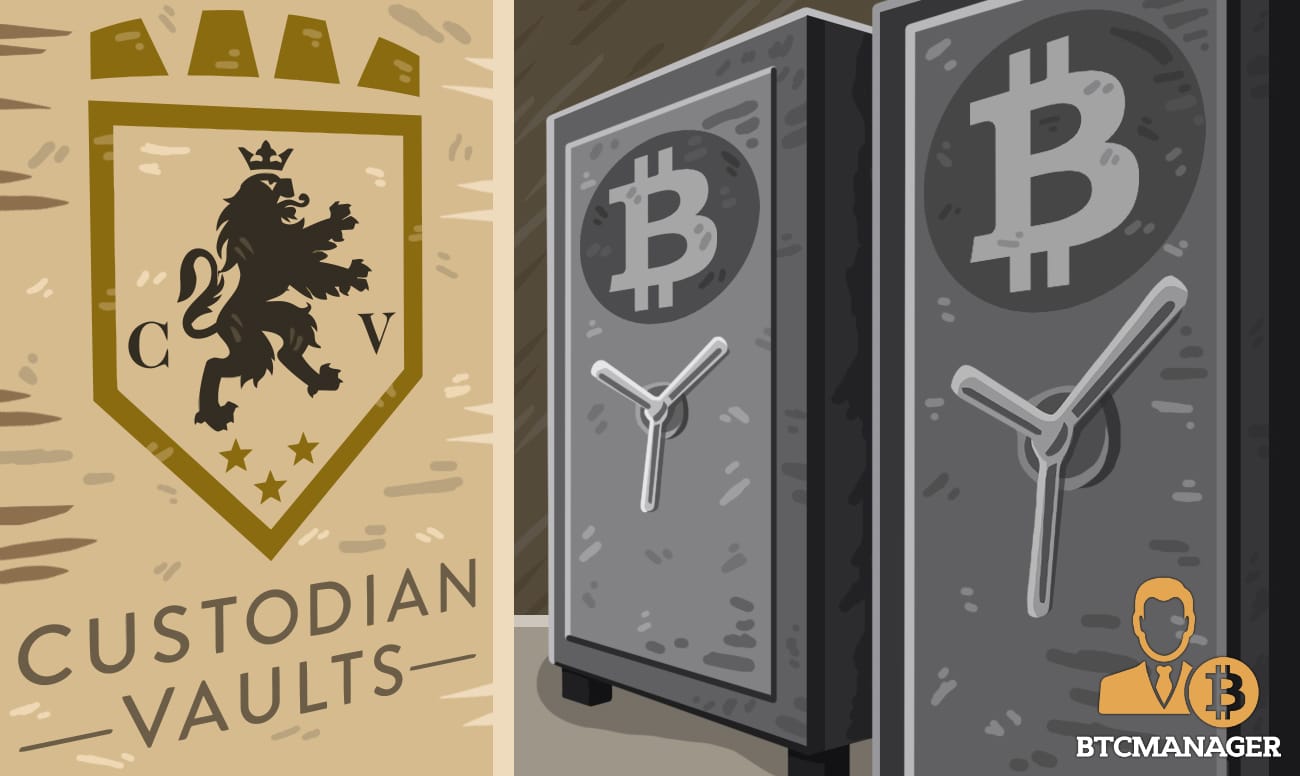Cryptocurrency Custodian Services Find Huge Demand in Australia

Australia-based Pallion, a precious metals firm, has expanded its subsidiary Custodian Vaults’ services to include the region’s first insured cryptocurrency custodial service according to July 16, 2018 reports.
Australia Receives Custodian Services
The burgeoning cryptocurrency sector is attracting substantial interest from institutional investors and high net worth individuals, who consider diversifying a part of their portfolio into the volatile asset class.
While Xapo caters to a worldwide audience of this demographic and Coinbase launched its Custody services in June 2018, the Oceania region lacks similar safekeeping services. To fill this gap, Custodian Vaults has partnered with Decentralised Capital, a Sydney-based blockchain advisory firm, to exclusively produce cold storage vaults for digital assets.
Unlike Xapo’s famed military-grade underground vaults, which are said to store over $10 billion worth of bitcoin, Custodian Vaults is more geographically-accessible and features round-the-clock CCTV monitoring, biometric vault entrance, and offline servers clusters.
Stephen Moss, the founder of Decentralised Capital, added the newly-formed entity supersedes Xapo in regards to the variety of assets stored. The latter only allows customers to store bitcoin, and Custodian Vaults extends its services from cryptocurrencies to precious metals.
Insurers Find Cryptocurrencies “Difficult”
Storing digital assets in a secure location remains a challenge for the cryptocurrency market. Traditional finance vehicles are typically backed by an equivalent of physical assets in a safe location, backed up by insuring agencies who can accurately mark asset value and bear a risk of loss.
However, Moss claimed Custodian Vault had secured an insurance firm to ensure clients’ digital funds have a low-risk exposure to untoward incidents.
The inherent nature of cryptocurrencies makes it difficult for companies to provide insurance. Given the nascency of the sector, insurers do not have enough data to measure risk, with the infamous volatility adding to their woes.
While security legislation for digital assets is mainly absent, countries like Japan and South Korea have required cryptocurrency exchanges to create strict customer protection laws and follow global security practices.
Insurance Regulations Needed
Currently, third-party services rely on advertised trust to convince customers of their ability to handle assets.
The ever-growing number of digital assets also means eventual regulatory scrutiny and formalized cold storage providers in the future. Due to a large amount of wealth involved, decentralized storage solutions will not suit wealthy investors, notes Finders.
For ensuring sustainable growth of the cryptocurrency sector, custodians need to develop cost-effective risk solutions, guided by a robust regulatory system. The report concluded:
“This can potentially open the door to more storage solutions and actual use and help the world find a suitable compromise between the benefits of decentralized systems and the convenience of entrusting assets to centralized third parties.”












